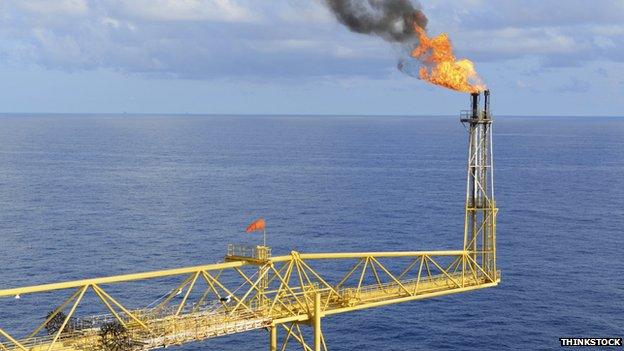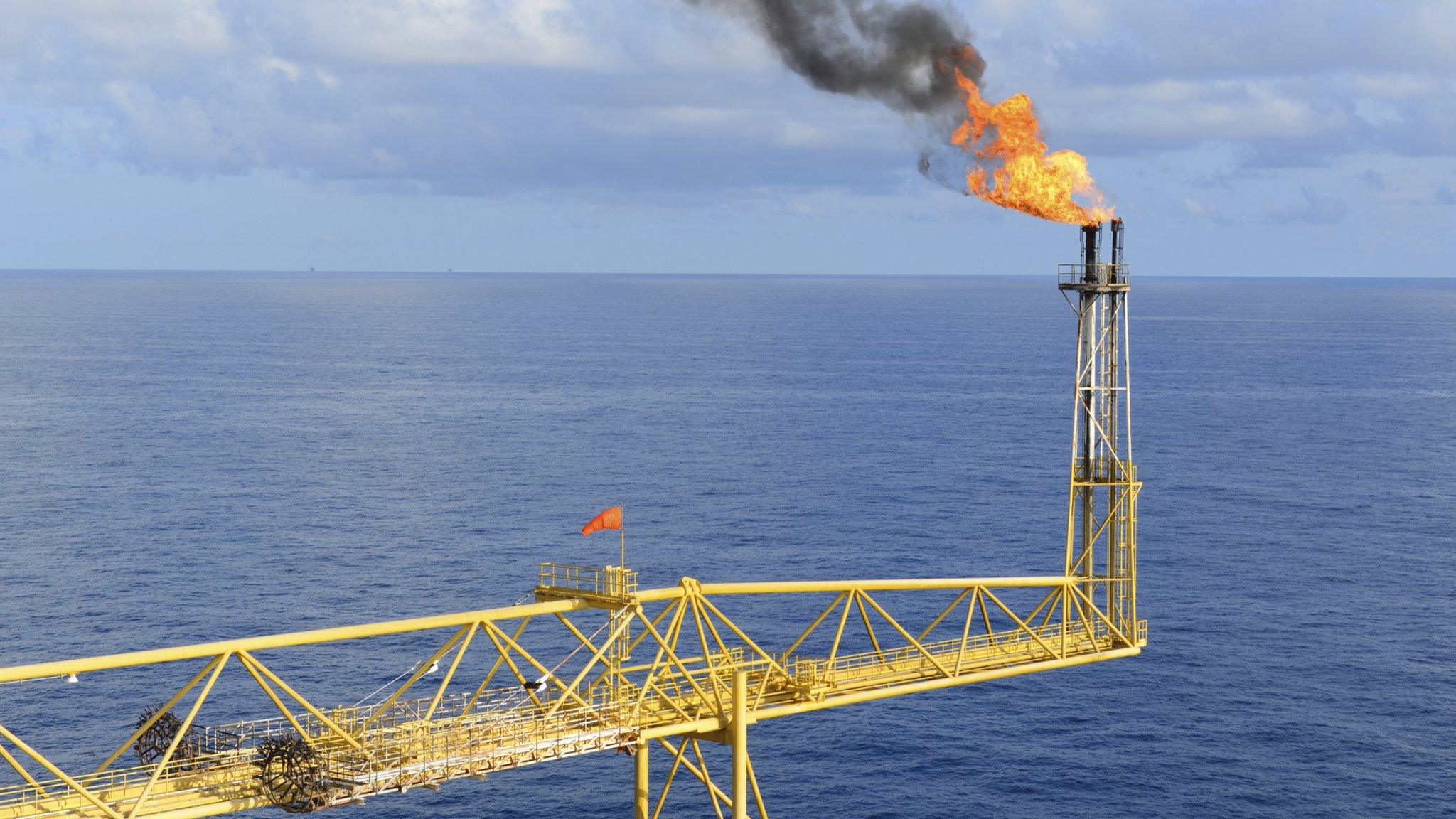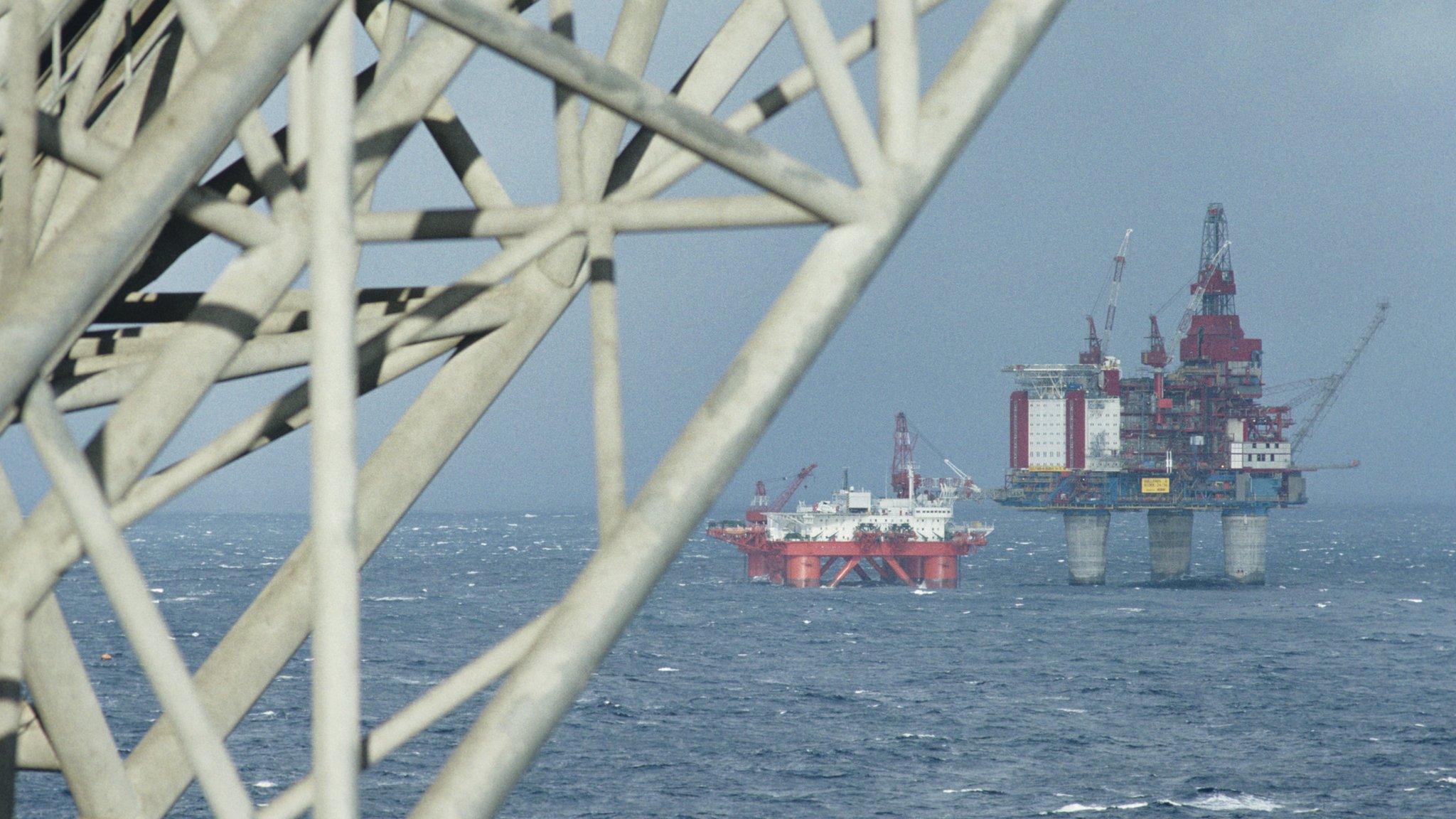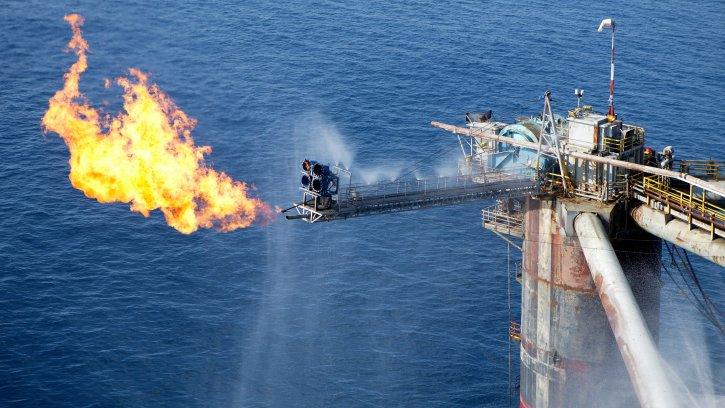BP and GDF Suez discover new North Sea oil field
- Published

Oil firms BP and GDF Suez have announced the discovery of a new field in the UK Central North Sea.
The find, which spans adjacent blocks operated separately by the two companies, has been flow-tested at a maximum rate of 5,350 barrels per day.
The discovery has been called Marconi by GDF Suez subsidiary GDF Suez E&P UK, while BP has named it Vorlich.
GDF Suez E&P UK managing director Ruud Zoon described the discovery as "encouraging".
He said: "The discovery is our third successful well this year and demonstrates a continuing commitment by GDF Suez to an active exploration and appraisal drilling programme on the UK Continental Shelf."
'Great example'
GDF Suez has already built up more than 50 licences in the Central and Southern North Sea and West of Shetland. The company employs more than 300 staff and contractors in offices in London and Aberdeen.
BP, along with co-venturers, is undertaking a £10bn investment programme in the North Sea. It has undertaken to spend more than £7bn of that sum in the next five years.
Trevor Garlick, regional president of BP North Sea, said: "As BP marks its 50th year in the North Sea and as the industry looks to maximise economic recovery from the basin, increasing exploration activity and finding new ways to collaborate will be critical to realising remaining potential.
"This discovery is a great example of both."
Industry body Oil & Gas UK welcomed the new discovery.
Operations director Oonagh Werngren said: "At a time when exploration in the UKCS (UK Continental Shelf) is facing severe investment and cost pressures, it is heartening to see two UK explorers apply their expertise to understand the risks of the CNS (Central North Sea) and demonstrate that there are still significant economic plays to be developed within the basin.
"Going forward, the UKCS needs to secure substantial investment and increase exploration, and this will come both through an improved fiscal regime and better technical understanding of the basin."
'Serious questions'
The UK government's Business and Energy Minister Matthew Hancock said: "We are determined to have set the right fiscal and regulatory regimes to make sure we can get the maximum possible economic extraction of oil and gas from the North Sea.
"This discovery shows exactly what can be achieved in the North Sea if companies work together to maximise the considerable potential of remaining oil and gas reserves."
The SNP said the discovery raised "serious questions" over the "scaremongering on oil revenues" by pro-Union politicians ahead of last month's independence referendum.
Scottish Energy Minister Fergus Ewing said: "This discovery is another great example of the huge potential the future holds for the North Sea.
"With more effective collaboration, increased exploration activity and a commitment to maximising economic recovery, the overall value that the industry continues to generate for the wider economy can also be maximised.
"It is critical that current reforms to the regulatory and fiscal regimes applying in the North Sea are expedited and prioritised with a view to ensuring the economic viability of projects such as these, and to realising the opportunities for development of the vast remaining resources in the North Sea."
- Published7 July 2014

- Published7 July 2014

- Published12 June 2014
